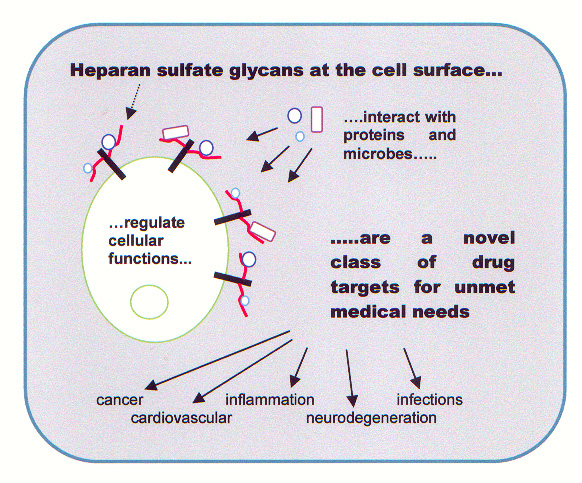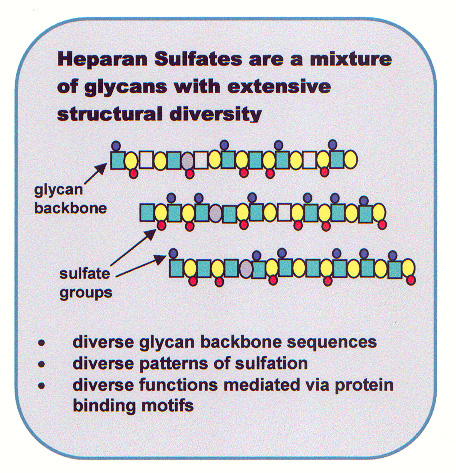![]()
Heparan Sulfates - Regulators of Cell Functions
Heparan sulfates (HS): are glycans (complex sugars) found on all cell surfaces which act by binding selectively to a variety of proteins and pathogens and are critically relevant to many disease processes (eg. cancer, cardiovascular disorders, inflammation, neurodegeneration and infectious diseases). Many of these activities have been detected using heparin, which is a subclass of the HS family of glycans and the world’s largest selling pharmaceutical by weight.


Heparin-based Pharmaceuticals: The use of heparin and its derivatives in the clinic illustrates the importance of the HS family of glycans and their potential as therapeutics: over 60 years as anticoagulants (preventing blood clotting) in the treatment of cardiovascular disease (responsible for 1 million deaths in the US alone in 2001) with a market of $2 billion.
It has also been known for many years that heparin has a wide range of other biological activities including effects on tumour growth and spread, microbial infectivity, inflammation and wound healing.
- heparin reduces tumour spread and prevents invasion in animal models, and there is anecdotal evidence for promise in the treatment of human cancer.
- heparin can prevent numerous bacteria (eg. Chlamydia, Staphlococcus aureus, N. gonorrhoea) and viruses (eg. Herpes simplex, HIV) binding and infecting human cells.
- heparin binds and regulates many proteins associated with inflammation (the process underlying diseases such as Asthma and Arthritis) and also many involved in tissue maintenance and repair.
- HS has been linked to neurodegenerative diseases such as Alzheimers and Prion disease and has been shown to bind protein targets for these diseases.
Heparin-based glycans influence a huge variety of cellular events associated with major disease groups and represent drug targets of increasing importance.